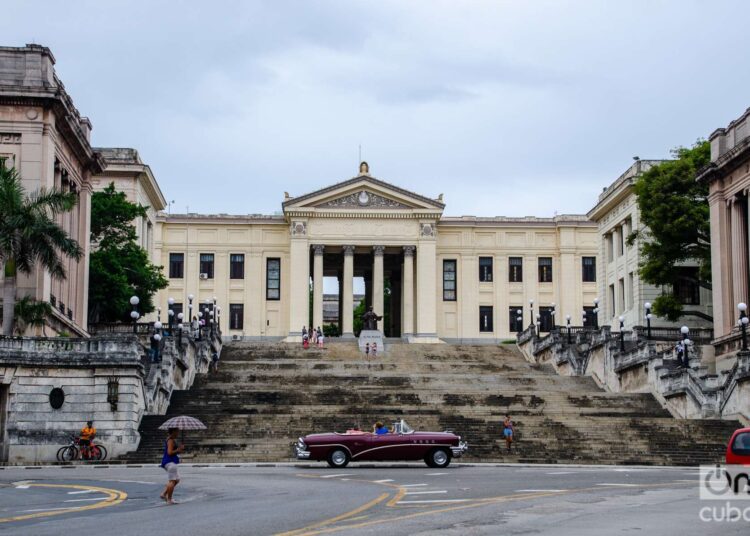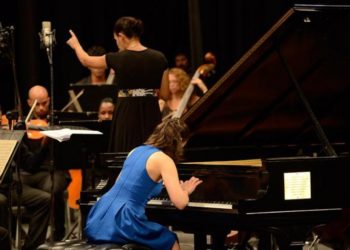Higher education in Cuba, historically conceived as a right and not a privilege, faces complex challenges and contradictions. Every year, thousands of young people face the university admissions process with both hope and anxiety. What was once considered a rigorous and prestigious filter for selecting the best-prepared students now raises doubts among professors, students, and families. Are we really rewarding excellence? Or are we simply fudging the numbers to sustain the narrative of universal access?
The numbers: many places, few guarantees
For the 2025-2026 academic year, according to the Agencia Cubana de Noticias news agency, the Ministry of Higher Education (MES) has made more than 100,000 spots available in 113 university degree courses and 65 short-term programs, distributed throughout the country.
Among the degree courses, the most in-demand ones stand out: Medicine, Law, Architecture, Psychology, Computer Engineering, and several economic programs. Additionally, more than 10,000 places are available for teaching degrees, and around 8,000 for short-term programs (lasting between two and three years). The latter has become a rapid path to job placement in regions where the availability of teachers and professionals is critical.
But these figures cannot be read without context. In the current 2024-2025 academic year, only 50.4% of students who took the entrance exams passed all three tests, while more than 85% ultimately obtained a university spot.
This may seem like a quantitative success, but it hides a serious problem: the quality of the exams and prior preparation have declined considerably.
In Mathematics, only 52.7% passed; in Spanish, 92.1%; and in Cuban History, 76.4%. These figures highlight significant deficiencies in academic training, which raise questions about the system’s ability to ensure university admission with the minimum necessary knowledge.
The paradox is that, despite these results, university access did not stop. The system ended up absorbing even those who demonstrated low levels of academic proficiency, which compromises the quality of the training process in higher education.
Several educators point out that this is due to the pressure to cover enrollment and maintain massive enrollment, in a country where universities have lost dozens of professors due to migration to other better-paid sectors or to other countries.
Thus, more than an educational achievement, the number of filled places is beginning to be seen as a symptom of a system that prioritizes quantity over quality.
Decline in rigor: a widespread criticism
Entrance exams — traditionally considered the main academic filter to access university studies — are now facing serious criticism for their low standards.
Voices increasingly point out that the exams, especially those in Mathematics and Spanish, fail to effectively discriminate between students’ different levels of preparation. In many cases, basic knowledge and minimal strategies are sufficient to obtain a passing grade.
Meanwhile, the History exam has been reduced to an almost rote exercise, focused on superficial data that does not require analysis or a deep understanding of the nation’s past. This situation is causing concern among teachers and specialists, who warn of the weakening of educational rigor at a time when the country urgently needs solidly trained professionals.
Furthermore, this phenomenon has direct consequences for the quality of learning and the professional development of students.
When the admissions process is not rigorous, there is a risk of insufficiently prepared students entering, which in turn forces universities to allocate additional resources to leveling up knowledge instead of advancing more complex content.
This creates an extra burden for teachers and negatively impacts the academic pace, limiting the comprehensive development of future professionals.
On the other hand, this context fosters an environment of demotivation among both students and teachers. Many young people perceive exams as a formality rather than a real challenge, which diminishes their commitment to studying and their interest in achieving excellence.
In turn, teachers face the frustration of seeing their efforts to maintain high standards undermined by a system that rewards mass participation over quality. Thus, a vicious cycle deepens that hinders sustained improvement in the country’s higher education.
Education and inequality: how to demand when there are no conditions?
From Camagüey, internet user Sergio Buenavilla offers a profound reflection: “I agree that we need an education that challenges, that demands, that educates with rigor. But rigor is not at odds with empathy. Excellence is not built solely with strict filters, but with solid and sustained training processes.”
And he poses a crucial question: “How do we build fair demands, ones that don’t punish the starting point, but rather empower the future?”
Because in Cuba — and this is important to note — not all students are on an equal footing for the entrance exam. The lack of electricity, the lack of permanent teachers, the shortage of textbooks, and the mass exodus of educators are just some of the adverse conditions facing thousands of young people.
A mother of a pre-university student comments from her daily experience: “I listen to them every day, sometimes with a broken heart, because the reality is so harsh that one can’t help but wonder how it’s possible. That they may be unmotivated, that they lack discipline — all of that is true. But we adults also question whether it’s worth the sacrifice of working for a salary that’s a joke.”
And she adds forcefully: “When educational quality is the spearhead for motivating students, and the system rewards the good ones, we may witness, perhaps, a return to the perception that going to university is an honor.”
This unequal scenario makes it difficult to implement an admissions system that truly reflects the potential and abilities of each student.
Demanding high levels of performance on standardized tests, without addressing the differences in available resources and support, may end up perpetuating existing educational and social gaps.
Instead of promoting equity, there is a risk of penalizing those with structural disadvantages, thus undermining the educational justice that is so sought after.
Therefore, many specialists insist on the need to rethink the university admissions process based on a comprehensive perspective, one that considers not only academic knowledge but also the living conditions and real opportunities of each applicant.
This entails strengthening basic and secondary education, guaranteeing access to materials and qualified teachers, and designing evaluation systems that recognize diverse forms of learning and talent. Only in this way can we aspire to a higher education that is truly inclusive and promotes the training of competent and committed professionals.
And the future?
The MES defends the current transformations as strategies for social justice and rationality. According to its officials, the goal is to achieve a more equitable distribution of young talent and train professionals where they are most needed.
The vocation for teaching is also promoted as a national priority, with direct admission for those who choose this career. But this policy clashes with reality: many young people choose pedagogies only as a “last option,” and then drop out shortly afterward due to lack of motivation, material means, or real vocation.
The consequences are visible. Schools without teachers. Overcrowded classrooms. Improvised professors. And a university system that admits students without a solid foundation for pursuing higher education.
University admissions in Cuba should be a topic of national debate today, more than ever. Amid the deep economic crisis, the mass exodus, and the loss of trust in institutions, higher education remains one of the few collective hopes.
But if the admissions system is not thoroughly reviewed, if the prestige of being a university student is not restored from the ground up, if the faculty is not dignified and the student body is not listened to, the university could cease to be an engine of transformation and become a simulation of progress.
Because, as Paulo Freire describes in his work Pedagogía del oprimido (1970), education must be a transformative act that awakens consciences; otherwise, it becomes a routine that doesn’t question or promote change. Today, Cuban higher education needs this profound transformation more than ever. Not to close doors, but to open them more effectively.










